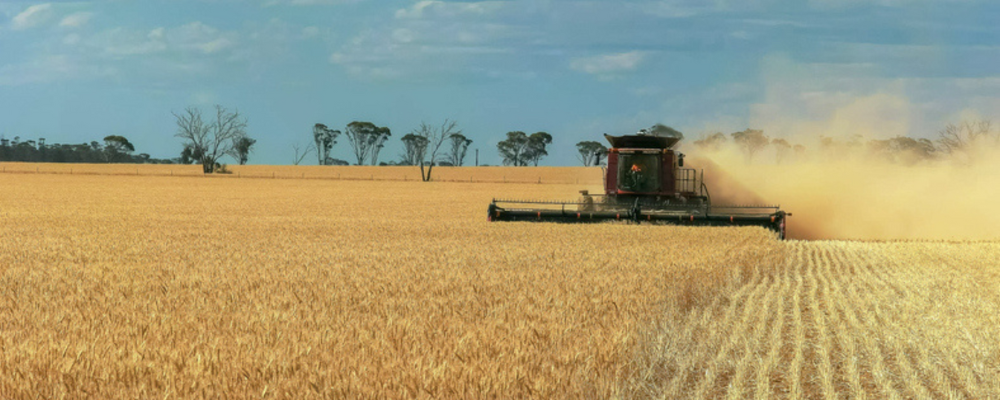FutureAg sows seeds of drought resilience for Aussie farmers
By bringing together the brightest minds and most practical solutions, FutureAg is cultivating a resilient and thriving future for Australian agriculture.

As the relentless sun beats down on parched fields across Australia, farmers are all too familiar with the harsh realities of drought.
But amid these challenging times, a beacon of hope shines bright at the upcoming FutureAg Expo at Melbourne Showgrounds. This premier agricultural trade exhibition and conference is set to showcase groundbreaking solutions to help farmers weather the storm of unpredictable climate patterns.
At the heart of this year's expo is a laser-focused approach to drought resilience, with the Victorian Drought Resilience Adoption and Innovation Hub (Vic Hub) taking centre stage in the Conference program.
FutureAg leads with crucial drought discussions
Two specially curated panel sessions for FutureAg promise to deliver practical insights and innovative strategies for farmers grappling with the ever-present threat of drought.
Panel one is “Building drought resilience through collaborative innovation: Addressing the problem”. This will explore how collaborative models like the Vic Hub are driving agricultural innovation in Victoria. It will focus on defining drought-related problems and developing targeted solutions through partnerships and consultation to enhance resilience and sustainability.
While panel two, “Practical innovations for on-the-ground drought resilience”, presents tangible technologies, practices and strategies that farmers can implement to boost drought resilience, increase productivity, and optimise resource utilisation in their agricultural operations.
Building resilience for Australian agriculture
Vic Hub director Dr Sara Hely emphasises that drought resilience goes beyond surviving a drought when it occurs.
"It’s about the capacity of individuals, businesses and communities to plan, adapt and thrive in the face of variable and changing climatic conditions," she explained.
This holistic approach recognises drought not as a one-off event but as a recurring challenge that impacts productivity, mental health, regional economies, and environmental sustainability.
“Our role is to embed long-term thinking into all phases of the drought cycle,” Dr Hely said.
The Vic Hub's framework revolves around four key stages of drought: the good period, the uncertain period, the drought period, and recovery.
Dr Hely stresses the importance of understanding these stages, noting that it “shifts the conversation from reaction to crisis to planning across the entire cycle, enabling tailored solutions for different times and needs”.

Innovations on the horizon
FutureAg attendees can expect to discover a range of promising innovations and technologies aimed at boosting drought resilience.
- Agtech tools: Soil moisture sensors, on-farm weather stations, and remote sensing platforms are empowering farmers to make smarter decisions about water and input management.
- Climate risk modelling: Advanced agronomic forecasting is helping farmers prepare for and mitigate potential drought impacts.
- Agrivoltaics: These dual-use systems combine renewable energy with farming, offering a way to diversify income and reduce climate risk exposure.
- One standout project that will be showcased at FutureAg is the Small Farm Dams initiative. This innovative tool utilises spatial imagery to help farmers assess and plan for potential water shortages, enabling proactive water management decisions.
Collaboration is the key
The Vic Hub’s collaborative model brings together research institutions, farming systems groups, government bodies, and industry partners. This diverse network ensures that world-class science is combined with on-the-ground regional knowledge, resulting in solutions that are both cutting-edge and practical.
“We see co-design as essential,” Dr Hely said. “Solutions must be tailored, trusted and embedded in real-world contexts to have a lasting impact.”
Looking to the future
FutureAg recognises the delicate balance between immediate drought response strategies and long-term resilience building.
Dr Hely stresses the importance of investing in systemic, long-term change, including better planning, diversification of income streams, and capacity-building within rural communities and businesses.
While digital technologies play a crucial role in enhancing drought resilience, Dr Hely acknowledges the importance of accessibility and relevance. The Vic Hub is actively supporting projects that improve digital literacy among farmers and ensuring that new technologies add clarity and value, rather than complexity.
As FutureAg prepares to open its doors, Dr Hely leaves us with a powerful reminder: “Drought resilience is everyone's business, not just farmers’. It's about the health of our food systems, our communities and our environment.”
Register today for FutureAg, August 6-8, 2025 at Melbourne Showgrounds.
Article written by The Weekly Times
)
)
)